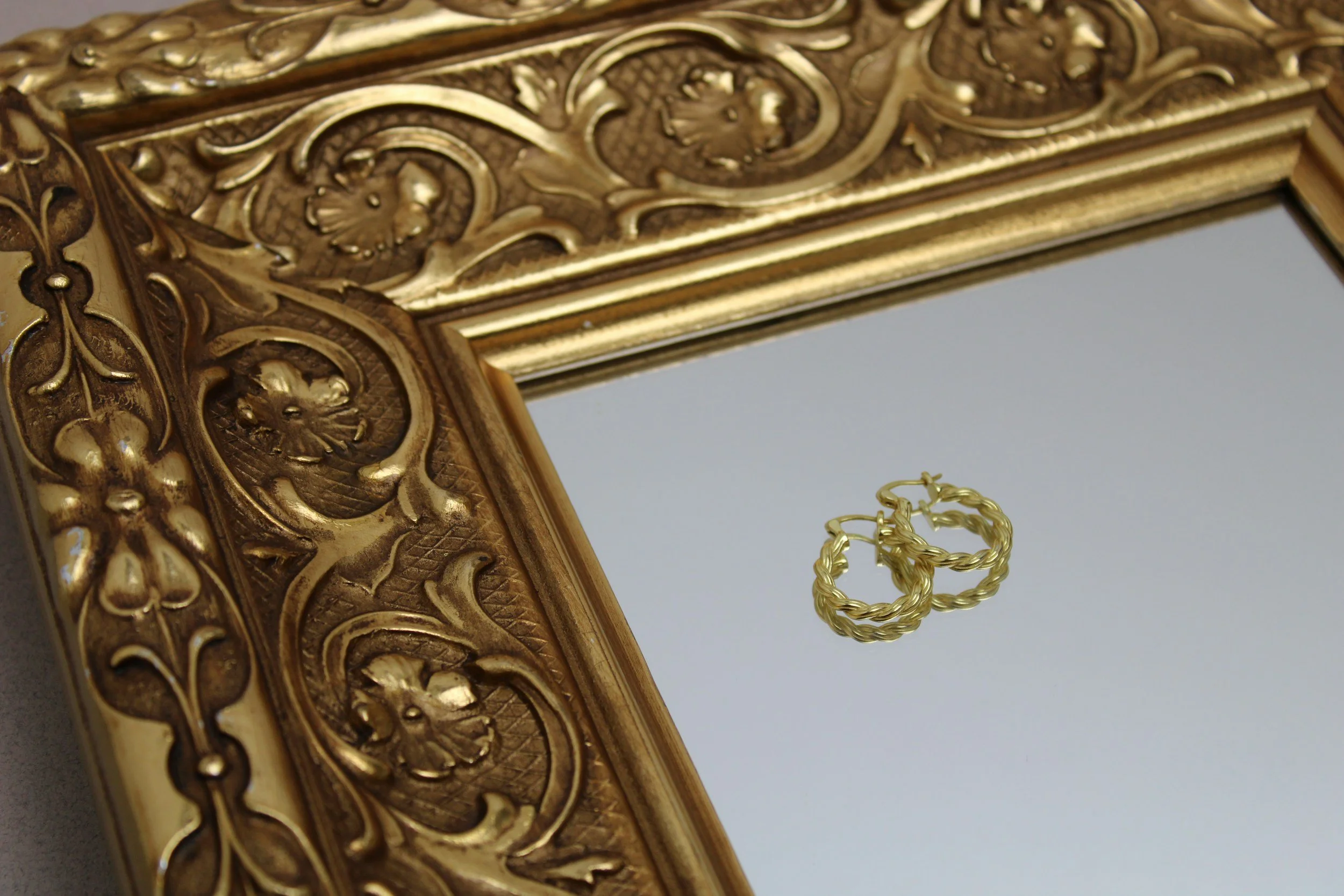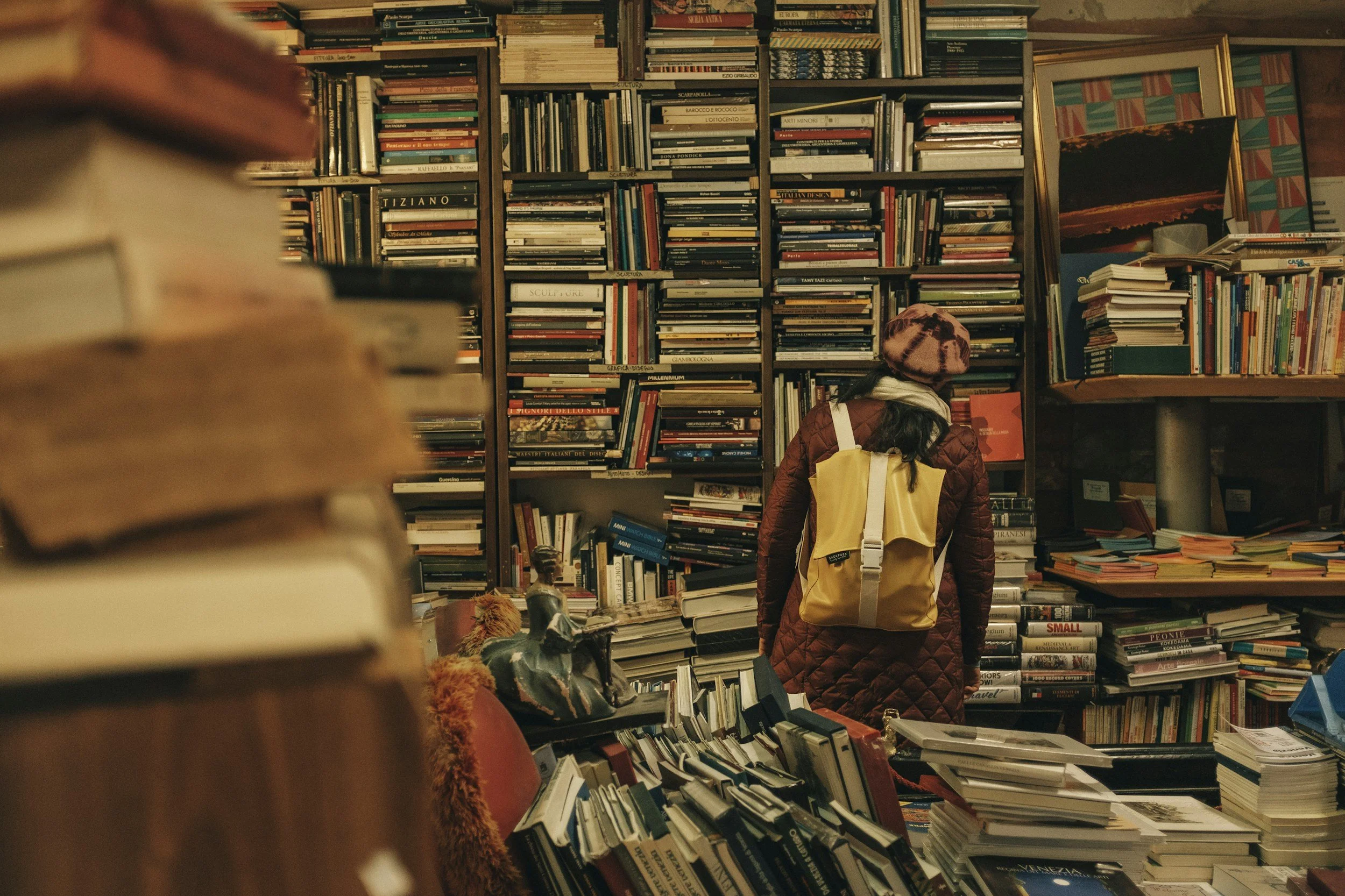The Emperor (Reversed)
I don’t think Jordan started out with a battle plan. But, by the time we lived together, their troops were in action in a war I didn’t even know had been declared. I didn’t have time to grab a white handkerchief, or a tissue, or my Abercrombie & Fitch tank top tinged by age. I’m sure the red flags were all there in hindsight, but I try not to assign blame to myself for not seeing the signs—for not noticing that slowly, the person I once loved was abusing me. They attacked in a three-step plan, systematically stripping away the fundamental trust I had in myself I had clawed myself into having.
There’s a wound that hasn’t healed over yet. I hadn’t ever let myself be that visible to someone before, to live with someone and let them see everything. Jordan acquainted themself with me—saw my most unfiltered self, and it repulsed them. I know I’m not to blame for their actions, but I cannot quite shake the feeling that was my doing that turned it so sour. I cannot release the control they have over me; that they are right, I am wrong. It is my fault. It is always my fault. I always forget, and I always try but it is never enough.
In the end, all I have to show for it is a drop-shipped necklace sent silently in the mail, an empty mason jar, and an irritating habit of asking if I can ask a question.
WAVE 1: MICROMANAGE
Jordan breaks the silence with a question: “Why are you doing that?”
I pause and examine them, sitting across our shared room in one of the two spots we have to collapse after a long day. In this tiny shoe box we are calling ‘home,’ you can either sit on the single saucer chair or your spot in bed. I’m planning to take the chair. I hate when my Boston bus germs touch the sheets.
I look at my hands, holding the chain I wrap around my neck for work, adorned with a rose quartz point. The clasp is open, ready to be put back together so it can be hung on my plastic tree.
“Putting it away?”
“Clipping it back together. You’re just going to undo it tomorrow.”
“I try to store them all hanging. It keeps them from getting tangled.”
“It’s inefficient.”
“It’s a small thing,” I start to defend.
“It’s unnecessary.”
“Hon,” I pause, swelling whatever volatile crescendo had started under my nose. “I just don’t want it to get tangled.”
They’re quiet and look back at their phone, jeans touching the sheets. I would have made the bed, offered some protection to the purple jersey fabric with the shabby-chic gray comforter I brought from home, but that was against the stipulations for this living arrangement.
We moved in together partly out of necessity, partly because my unpaid internship was taking up half of my schedule, leaving myself unable to support a bedroom in Boston alone, and partly because we were on the eve of cross-country long distance. In four months, two thousand eight hundred miles and a three-hour-time difference were going to separate us. They stare me down anytime I let my mind wander to a future with them.
But they are moving to California. And all I’ve ever known is here.
We decided sharing a room for the summer was a perfect solution. It offered us both reduced rent and a chance to test the waters. I didn’t want to join them across the country if we had never shared a living space.
A parameter of moving in together was that the bed must be unmade. I offered to make it without any request for them to reciprocate. I love the look and feeling of a made bed. It tells me that I’ve started my day, that I will have a place I feel comfortable collapsing into at the end of it.
It was rejected, though. It’ll make me feel like I’m not an equal participant in the space, they had said. And I don’t believe in making the bed. It’s a fundamental waste of time and energy. You’re just going to unmake it later anyway. I couldn’t think of a way to respond, so I agreed and moved on. I didn’t need the bed made, after all.
We live with clothes on the floor and the sheets exposed. I keep my pillow propped up so the cat won’t walk all over it; pink-eye is a deep fear my Zoloft is unable to touch. It does enough to quell my fears when I feel a tinge of something in my eye.
I want at least the appearance to be upheld that we are working. A comforter could cover up the rumpled sheets that don’t fit the mattress quite right. A comforter could protect the sheets after the fabled Clean Sheet Nights I treat myself to every two weeks like clockwork. I clean the sheets a few nights prior, and I don’t want my MBTA germs to contaminate this precious feeling.
The cat is curled up in the saucer chair, so I place the unclasped necklace down, move to the bed, and adjust a blanket to protect the sheets from my germs.
WAVE 2: BELITTLE
It’s my favorite night. It’s spaghetti night. I fucking love plain spaghetti, seasoned with a little salt and butter. It’s been my favorite meal since I was a kid and I was unable to figure out how to twirl up my noodles. I remember my mother cutting it up into inch-long pieces and giving me a spoon. This memory makes me happy. Everything about spaghetti makes me happy.
Due to the shoe box, I am living in what I dub ‘camping mode:’ as few necessities as possible. This, I guess, included a colander. As someone who’s passionate about spaghetti, this was probably an oversight. Regardless, I was determined. I needed it to be spaghetti night.
I overcook the noodles one minute to the box’s suggestions—I hate chewy pasta—and begin to pour out the pasta water. I precariously hold the pot over the sink, protecting the noodles from gravity with a large spoon. It’s not the most graceful approach, perhaps, but I am determined to drain these noodles.
Jordan walks in at hearing the draining water and chuckles at my awkward stance. It’s heavy on my wrists and a little uncomfortable, but I am nothing if not persistent.
“Let me,” they say, and I agree, placing it back on the burner to pass them the hot saucepan. They pick up the lid and place it ajar, allowing the water to drain and the pasta to remain safe.
I’m stunned. It didn’t dawn on me in the slightest to use the lid.
“Genius! My partner is a genius!”
I start pulling bowls out of the cupboard, butter out of the fridge, and prepare for my favorite meal.
“I don’t know if I’m that smart, hon. I think you may be a little bit stupid.”
This rolls off my shoulders, “I know but hey!”
I turn this statement into a joke. It is a joke. But it has a touch of truth to it; I’m just a little stupid sometimes. Ideas like that don’t usually pop into my head. In lieu of resourcefulness, I opt for tenacity. Thank god I have someone who thinks like this in my life.
I begin stirring my noodles, the heat melting the butter. Somehow, my meal doesn’t taste as good as usual.
WAVE 3: ISOLATE
Jordan knew me before my OCD was medicated. I would frequently wake up at 6:00 a.m. with fears of pink-eye. Turns out, when you run to the mirror at the first sign of feeling too much eye gook upon awakening, your eyes may be red. And this may make you spiral.
I feel I was hard to love when it was bad—my sobs waking them up because I was so, so sure I had pink eye, and they wear contacts and I was going to get them sick and they were going to be mad and being with me meant pain and sickness and I wasn’t worth that.
Then Zoloft is added to my life. And I stop waking up thinking I have pink-eye, and I start being able to sleep past 6:00 a.m. A once rare occurrence in my life. Medication brought my life back, and brought a new one at that. A life where my softness was untouched by worry. I’d never known this was possible.
But this summer, my Zoloft starts giving me side effects. The once miracle pill gives me awful acid reflux at night out of nowhere. I chow down half a waffle before swallowing it, half after to sandwich it into my stomach, and then I spend an hour by the toilet; the acid rising up my esophagus and stinging my throat as if I was being choked by my own body.
A call with my psych does not put me much at ease: “Lauren, side effects only start popping up when something is off in your life. You mentioned moving in with your partner. Is that going well?”
“Yeah.” I don’t have much to say.
I think Jordan and I are ‘opposites attract.’ Years of only reading romance novels teaches me to see the tropes everywhere I turn. I repeat in my head as a mantra: we are grumpy/sunshine. We are right on the cusp of the happy part. I just need to hold on.
It never bothered me before since I feel we balance each other out. I bring silliness and softness and kindness—a desire to assume the best in people. They bring strength and an ability to be curt, to push back against others at the first sign of mistreatment.
Mistreatment that, they believe, my family inflicted upon me any chance they got.
This culminates in a fight on one of our few date days. My one day off a week and their one day off a week rarely aligned, but it did one day in late July, and we walk to Starbucks in the heat. I mention a phone call with my mother the day prior, forgetting it was a particular hot-topic between us.
“You called her? Why?” Their shock is evident, and I can feel the anger brewing in their voice.
Fuck fuck fuck fuck.
“Well, I don’t really talk to anyone at my job, and by the time I’m home I just want to get some words out.”
“Then talk to me.”
I think back to the nights they get home late from a friend's house. I feel like a kid again, listening for the timbre in my dad’s footsteps as he walked up the stairs, desperately trying to parse out if he was in a bad mood. Except I am in my twenties. And I think this is what life was supposed to be.
Jordan’s key turns our front door and I wait, listening, waiting for its speed. Is the action of unlocking the door being done in anger tonight? If it is, I try to look away from the door, as if the seething fury in their eyes will wound me. As if I am playing hide-and-seek, and avoiding eye contact is a way to grant me invisibility.
I speak as gently as possible, “Sometimes, you just don’t want to talk when you’re home. And that’s fine, but I just need to get words out, so I do.”
They exhale. “Fine,” they nod. “That makes sense. Maybe send me some voice memos, then, and I’ll listen to them when I have time.”
I purse my lips, begging my eyes to not betray me. A breeze swells, and I look into it, desperately hoping the wind and the heat will evaporate the pooling tears.
I want to be listened to, not just heard. I want someone talking to me to not be an item to check off a list, but done because they want to hear my voice, to hear my giggles, and to know what is happening in my day.
They apologize later, but I don’t call my mom for a week.
WAVE 4: CONTROL
Jordan’s job cashes out all tips in bills. As a result, their wallet is filled in an almost-comical volume at the end of every coffee shift. They fill a mason jar with rolls of ones and fives. It sits on our unusable desk, due to the clothes piled up on the floor behind it. It doesn’t matter, though. I don’t want to write anyway.
It makes me nervous. If anyone unlocked the front door and looked around the corner, they might be able to see it, take it, and bolt into the gardens nearby. My packages keep getting stolen, and nothing about the shattered glass in the front door screams ‘security.’ I suggested it go inside the drawer, just to quell any fears if we have have a break-in. This is immediately shot down.
In fact, this is too far and a new rule has to be put in place: I am no longer allowed to suggest something without permission. If I have an idea on how something could be improved, I have to ask if they were in the right headspace for a suggestion. I am no longer allowed to have a voice. I have to be granted a voice, done on a case-by-case basis.
They say it was my doing that caused this rule, that my nerves are infecting them and the space.
I cry.
It doesn’t matter.
I start asking if I can ask a question, a habit I still haven’t quite broken years later.
A week after we move apart and start long distance, we end over a phone call.
I get myself a glass of water to re-hydrate my body after the long talk, my new roommates quietly watching my movements. They can feel the devastation emanating from my pores.
I spot the empty fucking mason jar and realize it wound up with my things during the move out. I once thought of Jordan with reverence, a sort of deity status that someone like that loved someone like me: an anxious, silly goose who just wanted to talk, and laugh, and love. Who wanted to ask about how their day was, and have that be reciprocated. Who wanted to be missed when she spent a night with her friends.
I no longer believe that this love is returned. Our relationship is all about bending me into an empty, demure, meek vessel who holds anything of theirs they want me to and none of my own. I am supposed to be invisible and silent, moving through our legally shared space, but I can’t make the bed. And I can’t clean the clothes off the floor to get to the desk to write. I am an object, paying the $1,000 dollars a month I brought in to be asked to be quiet.
Fuck them. This jar is mine now.
*
A month later, it’s my birthday, and I open an unknown package to find a probably drop-shipped, heart-shaped necklace, with a note signed by Jordan. Nothing else. Just their name. I think about its possible new place on my tree, hung next to the same rose quartz point. At that, the familiar acid rises in my throat. I will not let myself be suffocated again.
I don’t even open the clear plastic it comes in. I toss it in the trash and throw the remnants of my spaghetti on top of it for good measure.
-Lauren Smith
Lauren Smith is a writer living in Boston. She can be found often with her steam cleaner, getting into the nooks and crannies of her apartment. She loves prose filled with long sentences that swell all around the reader, candles that smell like water, and crocheting to whatever reality dating show just premiered.




















